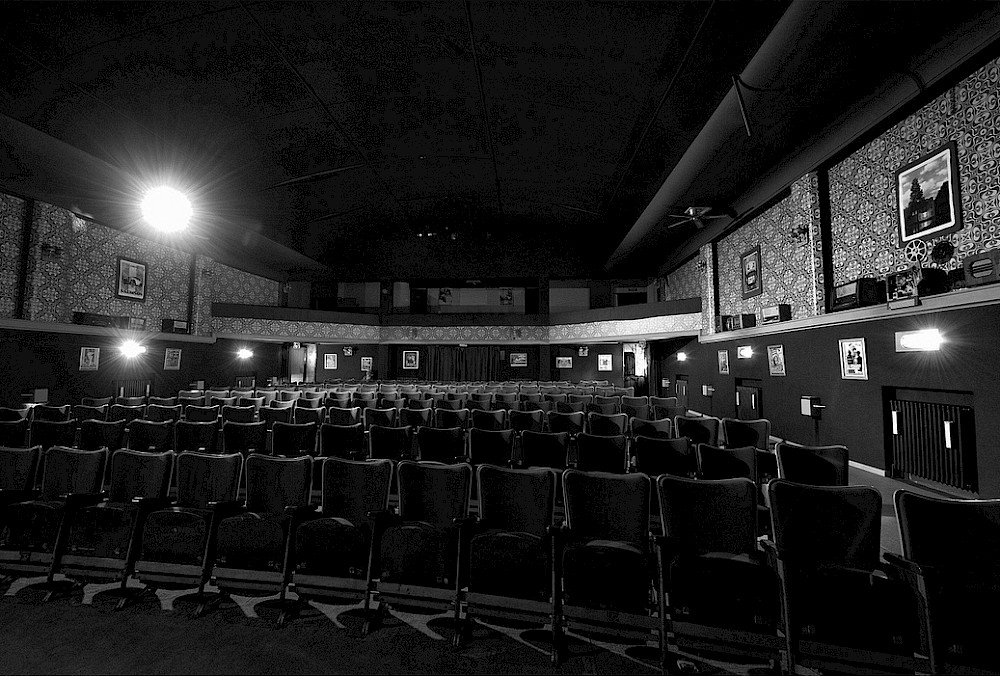11 — 15.05
Carolina Bianchi, Carolina Mendonça São Paulo-Amsterdam-Brussels
We do not comfortably contemplate the sexuality of our mothers
performance
| Portuguese, French → NL, FR, EN | ⧖ 1h15 | €16 / €13 | Not suitable for children
Can we understand someone’s oeuvre without knowing her personal life? At the invitation of the festival, theatre makers Carolina Bianchi – who caused a furore at last year’s Festival d’Avignon – and Carolina Mendonça enter into conversation with filmmaker and writer Chantal Akerman. Why are we so obsessed with finding out the truth about someone? In Ma mère rit, Akerman wrote: “I don’t have a life, I’ve never learned how to make one for myself”. According to Bianchi and Mendonça, the personal lives of female artists are often scrutinised to the point of eclipsing their work. Now, they propose a dialogue with Akerman, about sexuality, heredity and the autobiographical writing process. With this venture, Bianchi and Mendonça continue their investigation on women artists of previous generations and on an expanded form of motherhood, two crucial concepts in their artistic path. They draw inspiration from fragments of Ma mère rit – in which Akerman wrote her memoirs while caring for her ailing mother – and scenes from Les Rendez-vous d’Anna, a movie in which she spent a night with her mother in a hotel close to the Gare du Midi. A layered reading performance coloured by Akerman’s mood and language, in an abandoned cinema, some streets away from that very hotel room.
TO WRITE
Clarice Lispector says that to write is to make the word say what it is not. So it’s possible that writing is writing down what cannot be said. Writing as a conflict. Writing in order to look. It is through the conflict of writing that this encounter with Chantal Akerman begins. Her cinema is a conglomeration of writing, everywhere. Everything is written there all the time. Her texts continually speak of the constant desire to write. To articulate the words of the event. After all, she herself says, “Without writing, I can’t.” I can’t either, Chantal. What we share over the next hour is the result of this approximation and what this encounter can reveal, make visible. And to reveal is sometimes to read aloud, even in the dark, what (supposedly) cannot be said.
Carolina Bianchi
TO CINEMA
A man sits down at the next table, where the croissant man used to be. He has come with a pram, with a tiny baby inside.
Could it be a newborn? I’m not good at calculating the age of babies or children. He orders a Coca-Cola and prepares a bottle – water mixed with a white powder? With that, the baby entertains itself for a long time. On the phone, he tells someone that he’s resuming work on Monday and that “Alice” starts again tomorrow.
I take a cigarette break. I want to look around some more, open up my field of vision. I feel like I’m looking more at the paper than at the world outside.
A woman runs to catch the number 86 bus, another one already. They pass frequently. Every three minutes? Every five? I don’t think she’ll make it, her running is heavy. But she makes it in time and surprises me by taking a light, agile leap onto the bus. Another woman in a grey cap, shorts, and beige tank top with a black belt takes a photograph of the church. She’s standing at the edge of the church’s shadow, which takes up a large part of the square; the church is illuminated by the sun. Everything around her seems to be in motion, and this instant of immobility transforms her into a vertical line that is nice to observe.
A young man walks up to the fountain wearing a t-shirt in all the colours of the rainbow. He makes me realise that there aren’t many colours around. The green of the trees, the parasol. The beige of the fountain, the church, and people’s clothing. A Black man crossed the street a few minutes ago. Apart from him, everyone in this square is white, unlike the neighbourhood I live in. A group of tourists arrive on bi- cycles. They stop somewhere between the church and the fountain and listen to a man, also on a bicycle, who points in different directions, choreographing all the glances of those alongside him.
Alice finally arrives at the next table. Also by bicycle. She immediately picks up the baby, and her husband apologises for something, showing her the crumpled wad of blood- stained toilet paper in his hand. The colour of the bright red blood, lit by the sun, sticks in my mind. Alice doesn’t react much and compliments the way the baby is dressed. She orders a Perrier and they sit in silence for a while. Three yellow leaves fall to the ground, almost in slow motion, directly in front of me. I’m wearing a tank top, a skirt and sandals, but I know that this won’t last much longer.
Carolina Mendonça
11.05
- 18:00
12.05
- 17:00
- + aftertalk
- Sold out — Register to the ticket alert
13.05
- 18:00
- New date
- Sold out — Register to the ticket alert
15.05
Presentation: Kunstenfestivaldesarts, Movy Club
Creation and performance: Carolina Bianchi & Carolina Mendonça | Texts: Carolina Bianchi | Direction: Carolina Bianchi | Dramaturge and translation supervision: Larissa Ballarotti | Video: Montserrat Fonseca Llach | Light design: Jo Rios | Photo and art support: Luisa Callegari | Production and distribution: Carla Estefan – Metro Gestão Cultural
Commissioned and produced by Kunstenfestivaldesarts
With the support of KVS
Thanks to: Ella De Gregoriis, Luisa Callegari, Eduardo Bordinhon, AnaCris Medina


